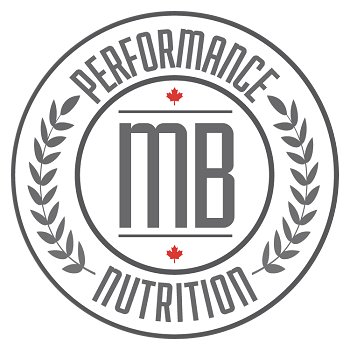Last updated on January 8th, 2025
Green tea extracts are promoted for both weight loss and sports performance.
But, do they actually work?
Not only this, you may have heard about serious side effects. Some cases of death have been associated with use of these supplements.
But you still see green tea supplements on the shelves.
So, let’s dig into the use of green tea extracts for both weight loss and sports performance. Then we’ll talk about how you can use these supplements safely.
COMPOUNDS IN GREEN TEA
Tea is from the plant Camellia sinensis. Green tea differs from black tea because it is not fermented before it’s dried. This is why green tea contains more antioxidants than black tea does. The type of fermentation uses enzymes that “oxidize” the antioxidants, so they’re in much smaller amounts in black tea.
These antioxidants are of the “catechins” family. And green tea also contains some caffeine.
So, green tea’s two main active substances are antioxidant catechins (e.g. EGCG epigallocatechin-3-gallate, etc.), as well as caffeine.
In fact, Green tea contains more catechins than it does caffeine (100-300 mg/cup catechins and 50-90 mg/cup caffeine). And it is the effect of both of these compounds together that are thought to help with weight loss and sports performance.
GREEN TEA VS GREEN TEA EXTRACTS
The difference between drinking green tea and taking it as a supplement is that the extracts are more concentrated. For example, the highest dose of the extract that seems to be safe is 9.9 g/day, which is equivalent to 24 cups of green tea. While this dose may be “safe”, it’s likely to come alongside some side effects. So, you need to drink a whole lot of tea to have the same effect as a few grams of the concentrated extract.
It is these green tea extracts that are added to many supplements. You can check your labels to see if it’s in yours.
GREEN TEA EXTRACTS FOR WEIGHT LOSS
Green tea is added to many supplements specifically marketed for weight loss.
Studies have shown that people who actually drink green tea tend to be slimmer than those who don’t. But this is just a correlation. And, interestingly, there may be a cultural effect. Green tea may affect people of Asian descent more than others.
In terms of weight loss, green tea catechins seem effective for overweight people. A review of several studies calculated an average weight loss of 1.3 kg after about 12 weeks. They also help with weight maintenance once some initial weight is lost.
These weight loss effects seem to work best when the catechins are taken along with the caffeine. Caffeine-free versions don’t seem to work as well.
So, it looks like these two substances work together. In fact, the caffeine is thought to be the “fat burner”, and the catechins are thought to help it to work more effectively.
And this weight loss effect seems to work better for people who don’t consume much caffeine on a regular basis.
This is because the body “adapts” to higher caffeine levels. Having over 300 mg of caffeine a day (2-4 cups of coffee/day) seems to be the level where the fat loss from green tea extracts levels out.
More studies are needed to see the weight effects of green tea extracts on non-obese people.
How this fat loss works in the body is that there seems to be some “thermogenic” properties (e.g. stimulation of fat burning and metabolism, etc.). These seem to work along with exercise for people who are sedentary, as well as those who are active.
Another way that green tea extracts may help with weight loss is that they can reduce absorption of carbohydrates from the gut. This has been shown in a couple of small studies.
The bottom line with green tea and weight loss is that it seems to improve the fat-burning effects of exercise. It can result in a couple of extra pounds lost in overweight people who don’t regularly ingest too much caffeine.
GREEN TEA EXTRACTS FOR SPORTS PERFORMANCE
Green tea, with its catechins and caffeine, may also help athletes to slowly lose weight. This is especially true if added to a diet with reduced calories and increased exercise.
Also, after losing weight, green tea extract supplements can help to maintain that lower weight.
We still don’t know a lot about these effects in athletes, nor the optimal doses.
Some animal studies show increased fat oxidation during aerobic exercise after ingestion of green tea catechins. This may be due to a glycogen-sparing effect in the muscles, which can be helpful for endurance athletes.
Long-term ingestion of green tea catechins can increase antioxidants in the blood and help to reduce exercise-induced oxidative stress and muscle damage. We don’t know how beneficial this is because, on the flip side, too many antioxidants can reduce training adaptations.
The bottom line with green tea for sports performance is that it might help with weight loss, as well as muscle glycogen for endurance athletes. More studies are needed.
SAFETY OF GREEN TEA EXTRACTS
You’ve probably heard about the concerns with green tea supplements. There have been reports of them being linked to cases of liver failure and even death.
But what is the real deal on the safety of green tea supplements?
We still don’t really know the effects of long-term use of the extracts. Drinking green tea doesn’t seem to negatively affect your liver.
Clinical studies show that up to 1.6 g of green tea extract at one time are safe for most people. At higher doses, some people may experience headache, dizziness, and nausea.
Overall, hepatotoxicity (a.k.a. liver toxicity) from green tea extracts is rare and can take months to occur. In fact, most of those few people who get it tend to recover within a few months after they stop taking the extracts.
Nonetheless, if you experience abdominal pain, dark urine or jaundice (yellowing of the skin), you should see your doctor and avoid supplements that contain green tea extracts.
It’s thought that the “hepatotoxic” compound in the green tea is in fact the catechin “EGCG” (epigallocatechin-3-gallate). Its concentration varies depending on the product. Other factors that may make someone more susceptible to liver injury are obesity, fasting, and/or glutathionine depletion.
HOW TO TAKE GREEN TEA EXTRACTS
Green tea extracts are approved in Canada for use as a source of antioxidants. They’re also approved to help with weight management, along with reducing calories and increasing physical activity.
For weight management, the Health Canada approved doses are 136-300 mg of EGCG and 75-150 mg caffeine, with an EGCG:caffeine ratio of 1.8:1 to 4:1, per day. All of this is for a maximum of 12-weeks.
If you take green tea extracts, you should take them as directed on the label, including taking them with food.
Don’t take them if you:
- Have liver concerns,
- Have iron deficiency (it reduces absorption of iron),
- Are pregnant or breastfeeding.
And discontinue if you experience any side effects.
Also note that they may interact with certain medications, so see your doctor or pharmacist to be sure.
Because endurance athletes, and especially women, are already susceptible to iron deficiency, I would tread very carefully with green tea extracts. Personally, after gathering this much questionable data, I wouldn’t take or recommend green tea supplements to my clients.
However, I will gladly drink green tea (especially matcha green tea) and definitely think this is a great option for most people for general health and reducing inflammation.
SUMMARY
- Green tea contains two main active ingredients, caffeine and antioxidants known as “catechins”.
- Green tea extracts are found in many supplements, including those for weight loss.
- Green tea seems to improve the fat-burning effects of exercise. It may result in the loss of a few extra pounds in people who are overweight.
- It seems that the catechins and caffeine work together to help with weight loss.
- Green tea extracts seem to be more effective in people who don’t normally ingest a lot of caffeine.
- They can help athletes lose weight and maintain lower weight.
- Green tea extracts may help to “spare” glycogen in the muscles, which may help endurance athletes.
- The antioxidant effect may help reduce muscle damage in athletes.
- Overall, green tea extracts are safe, with a small risk of liver issues, so take it as directed. And discontinue use if you experience side effects.
References:
Examine.com, Supplements, Green Tea Catechins. Accessed March 9, 2017. LINK: https://examine.com/supplements/green-tea-catechins/
Health Canada, Natural Health Products Ingredients Database, Green Tea Extracts. Accessed March 9, 2017. LINK: http://webprod.hc-sc.gc.ca/nhpid-bdipsn/atReq.do?atid=greentea_thevert&lang=eng
Hodgson, A.B., Randell, R.K. & Jeukendrup, A.E. (2013). The effect of green tea extract on fat oxidation at rest and during exercise: evidence of efficacy and proposed mechanisms. Adv Nutr. 2013 Mar 1;4(2):129-40. doi: 10.3945/an.112.003269. LINK: https://www.ncbi.nlm.nih.gov/pmc/articles/PMC3649093/
Hursel, R., Viechtbauer, W. & Westerterp-Plantenga, M.S. (2009). The effects of green tea on weight loss and weight maintenance: a meta-analysis. Int J Obes (Lond). 33(9):956-61. doi: 10.1038/ijo.2009.135.
Jówko E. Antioxidants in Sports Nutrition. Chapter 8: Green Tea Catechins and Sport Performance. © 2015 by Taylor & Francis Group, LLC. Bookshelf ID: NBK299060 PMID: 26065095 LINK: https://www.ncbi.nlm.nih.gov/books/NBK299060/
Kapoor, M.P., Sugita, M., Fukuzawa, Y. & Okubo, T. (2016). Physiological effects of epigallocatechin-3-gallate (EGCG) on energy expenditure for prospective fat oxidation in humans: A systematic review and meta-analysis. J Nutr Biochem. 43:1-10. doi: 10.1016/j.jnutbio.2016.10.013. LINK: https://www.ncbi.nlm.nih.gov/pubmed/27883924
National Institutes of Health, National Center for Complementary and Integrative Medicine, Green Tea. Accessed March 7, 2017. LINK: https://nccih.nih.gov/health/greentea
National Library of Medicine, LiverTox, Clinical and Research Information on Drug-Induced Liver Injury. DRUG RECORD: GREEN TEA (CAMELLIA SINESIS). Accessed March 7, 2017. LINK: https://livertox.nih.gov/GreenTea.htm
Rains, T.M., Agarwal, S. & Maki, K.C. (2011). Antiobesity effects of green tea catechins: a mechanistic review. J Nutr Biochem. 22(1):1-7. doi: 10.1016/j.jnutbio.2010.06.006. LINK: http://www.jnutbio.com/article/S0955-2863(10)00160-9/fulltext
Teschke, R., Zhang, L., Melzer, L., Schulze, J. & Eickhoff, A. (2014). Green tea extract and the risk of drug-induced liver injury. Expert Opin Drug Metab Toxicol. 2014 Dec;10(12):1663-76. doi: 10.1517/17425255.2014.971011. LINK: https://www.ncbi.nlm.nih.gov/pubmed/25316200
Türközü, D. & Tek, N.A. (2017). A minireview of effects of green tea on energy expenditure. Crit Rev Food Sci Nutr. 57(2):254-258. LINK: https://www.ncbi.nlm.nih.gov/pubmed/26091183
Westerterp-Plantenga, M.S., Lejeune, M.P. & Kovacs, E.M. (2005). Body weight loss and weight maintenance in relation to habitual caffeine intake and green tea supplementation. Obes Res. 2005 Jul;13(7):1195-204. LINK: http://onlinelibrary.wiley.com/doi/10.1038/oby.2005.142/full
Zhanga, Y., Yub, Y., Lia, X. , Megurod, S., Hayashie, S., Katashimae, M., Yasumasue, T., JWangc, J., Lia, K. (2012). Effects of catechin-enriched green tea beverage on visceral fat loss in adults with a high proportion of visceral fat: A double-blind, placebo-controlled, randomized trial Journal of Functional Foods. 4(1):315–322. doi:10.1016/j.jff.2011.12.010 LINK: http://www.sciencedirect.com/science/article/pii/S1756464611001162Content goes here


